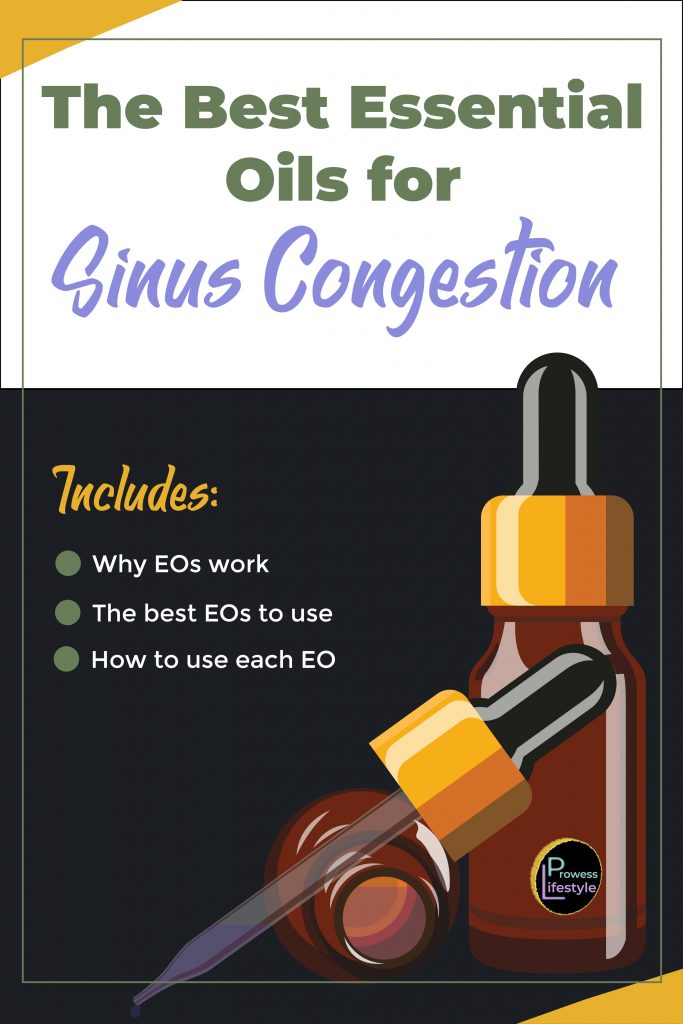Sinusitis, if left unchecked, can become chronic, even leading to blindness. The contents of this article focus on using plant-based extracts to remedy symptoms associated with sinusitis. This list of the best essential oils for sinus congestion is selected based on research and personal experience of the writer. The information within does not supersede counsel received from your physician.
——————————————————————–
You miss smelling the aroma of your favorite meal as it’s prepared in the kitchen. If that’s not bad enough, there’s not much to savor from the meal when it’s set before you, not because it doesn’t taste delightful, but because your sense of taste isn’t there.
Do these scenarios sound all too familiar?
Over 28.9 million people in the U.S. can relate to those nasty symptoms because, like you, they suffer from sinusitis.
Do you find it difficult to enjoy the simple pleasure of kissing your mate because your breath reeks? There’s no shame here; a sinus infection does cause bad breath.
What about those throbbing headaches that light up your cranium, causing your head to feel explosive? Sinusitis not only devalues your life, but disrupts quality sleep time and cast a cloud above social interactions with friends and relatives.
But, that’s not just it. A bad case of sinusitis can get worse. If left unchecked, sinusitis can become chronic and cause vision impairment. In fact, it can possibly cause permanent blindness. Although rare, chronic sinusitis may also cause meningitis or serious skin and bone infection.
Obviously, keeping your sinusitis in check is crucial. But, what can you do about it? Many people have found comfort in using some of the best essential oils for sinus congestion.
Why Use Essential Oils for Sinus Congestion?
How about simply using essential oils for sinus congestion because they work? A plethora of research information exists substantiating such, and from personal experience, essential oils do pack a punch against sinus infections.
My sinus infection is mild, but my husband’s case is horrible. He often complained about not being able to see well, and sometimes I’d have to shout just to ensure he hears me.
When I started practicing aromatherapy at home, I decided to use essential oils to help with his sinus problems. He was mostly miserable, so knowing the therapeutic benefits of essential oils, I wanted to at least help him get some sleep.
After pouring 4 drops of peppermint and eucalyptus oil each in a bowl of hot water, my husband felt instant relief after a few deep inhales. He recounted how his sinuses felt clear. Can you imagine how happy I was as a wife? Here I thought I was failing at aromatherapy, but right off the bat I was able to use the information I was learning, just by recounting the principal constituents in each oil, and what they were useful for.
Like my husband, plenty of people have used essential oils for sinus congestion, and have experienced tremendous relief. You can too.
At this stage, you’re probably wondering what’s out there and some of the best essential oils for sinus congestion. There is plenty of fish in the sea, so let’s proceed to the good stuff, shall we?
Note: If you’re in a hurry, jump straight to the last section of this page with the subheading “What Essential Oils are Used to Clear Sinuses?” This gives you a list of all the essential oils mentioned in this post. However, if you want to know why these essential oils are recommended and how they can be used, continue to the next section.
10 Best Essential Oils for Sinus Congestion
This isn’t an exhaustive list. There are a plethora of essential oils out there with the chemical profile to provide relief against sinus infection. However, I chose to mention the best essential oils for sinus congestion. To do otherwise would be extensive and painstaking. Plus, the oils to follow provide all the ammunition you need to find relief at home. To be honest, it’s just a matter of using what works for you and your aroma of choice.
1. Eucalyptus Essential Oil (Eucalyptus globulus var. globulus)
Eucalyptus globulus boasts a camphoraceous, leafy-green aroma. It’s commonly used for respiratory issues and may be found in some cough medicines. Eucalyptus oil wields a strong antimicrobial action, which is useful for sinus infection relief. In fact, it’s one of the best essential oils for sinus congestion, FYI.
How to Use Eucalyptus Essential Oil for Sinus Infection: add 5 drops to a container of hot water and take deep inhales for about 10 minutes.
Caution When Using Eucalyptus Essential Oil for Sinus Congestion: An essential oil is extracted from various species of the eucalyptus plant. Because eucalyptus oils contain high levels of cineole, it’s best not to administer eucalyptus in babies and sensitive infants. Avoid also if you struggle with high blood pressure and epilepsy. Narrow-leaf Eucalyptus (Eucalyptus radiata) tends to be the best oil to use with children above the age of 6 years old.
2. Peppermint Essential Oil (Mentha x piperita)
Peppermint’s minty, stimulating aroma isn’t only useful for boosting a flagging spirit but relieves sinus infection. Because the oil contains mild expectorant and mucolytic actions, it may provide relief against sinus congestion.
In fact, in folk tradition, the peppermint herb was used to soothe headaches, sore throat, and cough – all symptoms associated with inflamed sinuses.
Hence, using peppermint essential oil for sinus congestion may open up the sinuses and relieve pain.
In a study (Pitcher 2001), 20 adult patients were presented with chronic sinusitis. Of the 20, 5 patients were asthmatic. All were given undiluted peppermint to inhale for 10 minutes. In addition, drops of peppermint oil were added to a cushion to encourage better night-time breathing. All patients showed significant improvements in their sense of smell, headaches, and nasal congestion. Note, spearmint essential oil, a milder version of peppermint oil, can also be used to fight sinus congestion.
How to Use Peppermint Essential Oil for Sinus Infection: add 4 drops of peppermint and eucalyptus oil (Eucalyptus radiata) each to a container with hot water and take deep inhales.
Caution When Using Peppermint Essential Oil for Sinus Infection: Avoid use in cardiac fibrillation and near the nose of children under seven years old.
3. Ravintsara Essential Oil (Cinnamomum camphora (1,8-cineole CT))
Like Eucalyptus globulus, ravintsara essential oil is rich in cineole, and as such, is useful in relieving sinus infection symptoms and respiratory conditions. It’s a powerful oil to keep on hand when treating chronic or recurrent infections. It clears the sinuses to relieve congestion and pain. Alongside eucalyptus and peppermint, Ravintsara is one of the best essential oils for sinus congestion.
How to Use Ravintsara Essential Oil for Sinus Infection: add 4 drops each of Ravintsara and rosemary ct. cineole) in a bowl of hot water and inhale.
Caution When Using Ravintsara Essential Oil for Sinus Congestion: Do not use in children under 5 years old. Caution should be taken if used in pregnancy or while lactating due to its camphor content. Do not use this blend if you’re epileptic or have Parkinson’s Disease.
4. Thyme ct. linalool Essential Oil (Thymus vulgaris)
Thyme ct. linalool essential oil is used as a respiratory tonic to soothe common symptoms associated with sinusitis such as stuffiness, coughing, and sore throat. Its strong antimicrobial action can be used to remedy a plethora of infections.
As thyme also works against inflammation, it can be used to reduce rubor in the sinonasal mucosa.
How to Use Thyme Essential Oil for Sinus Infection: add 4 drops of thyme and tea tree oil each in a bowl of warm water and use it as a steam inhalant.
Caution When Using Thyme Essential Oil for Sinus Congestion: Ensure to keep the eyes closed when inhaling.
5. Spike Lavender Essential Oil (Lavandula latifolia)
Spike lavender essential oil’s use as an expectorant and mucolytic go way back. The herb was primarily used in folk tradition to remedy upper-respiratory-tract infection (Charron 1997).
In a study conducted using spike lavender, some 40 patients were presented with bronchial and sinus congestion issues. Each patient was asked to take whiffs of spike lavender from a bowl of hot water. All patients saw immediate relief. Their mucus cleared up, which lasted between 20 minutes to 2 hours.
How to Use Spike Lavender Essential Oil for Sinus Congestion: add 2 to 4 drops of spike lavender oil in a bowl of hot water. Place your head above the container and take deep inhales.
Caution When Using Spike Lavender Essential Oil for Sinus Congestion: No known contraindication.
6. Lemon Essential Oil (Citrus limonum)
A concoction made using lemon extract for a nasal spray showed positive results in a study. Individuals plagued with nasal congestion, a clogged nasal passage, and drainage can find relief by getting thrifty with their own DIY.
We won’t be making a nasal spray today, but using lemon essential oil in a steam inhalant is just as effective.
Note: if you’d like to try your hands at a nasal spray, we recommend this video for reference. Feel free to swap out the oils if you want to use lemon oil, or just go along with what the creator is using. However, a simple way to use lemon oil is mentioned below:
How to Use Lemon Essential Oil for Sinus Congestion: Add 6 drops of lemon and Ravintsara oil each in a bowl of hot water and inhale.
Caution When Using Lemon Essential Oil for Sinus Congestion: No known contraindications. Lemon is photo-toxic, but only with topical use.
7. Myrtle Essential Oil (Myrtus communis)
The gentle touch of myrtle may be used to clear inflamed sinuses. The oil gained popularity as a result of its antimicrobial and expectorant activity. It works against inflammation and may be used as a decongestant for respiratory ailments.
Research showed that myrtle essential oil can be used to “increase mucous… clearance from the respiratory system.” It’s a great option to clear those sinuses at home.
How to Use Myrtle Essential Oil for Sinus Congestion: Add 2 drops of eucalyptus (Eucalyptus smithii), 4 drops of myrtle, and 3 drops of lemon oil in a bowl of hot water. Take deep inhales.
Caution When Using Myrtle Essential Oil for Sinus Congestion: Do not use in children below the age of 6 years old.
8. Tea Tree Essential Oil (Melaleuca alternifolia)
The oil of tea tree fights against inflammation and may be used to clear blocked sinuses to give you some breathing room. Use to break up the sinuses to ease congestion. As an antimicrobial agent, tea tree essential oil is undoubtedly one of the best essential oils for sinus congestion.
How to Use Tea Tree Essential Oil for Sinus Congestion: combine 3 drops of tea tree, 1 drop of sweet orange, and 3 drops of true lavender in a tablespoon of jojoba oil. Massage the formula around the nose, on the cheeks, forehead, behind the ears, front and back of the neck,
Caution When Using Tea Tree Essential Oil for Sinus Congestion: Be careful when applying on to the face. If you have hypersensitive skin, use more carrier oil to dilute.
9. Basil Essential Oil (Ocimum basilicum)
“Basil and rosemary have long been used for treating…sinusitis.” You can use basil on its own to soothe symptoms of a sinus infection or combine it with rosemary for a synergistic effect.
How to Use Basil Essential Oil for Sinus Infection: add 6 drops of basil essential oil in a container of hot water and inhale.
Caution When Using Basil Essential Oil for Sinus Congestion: Do not use on children below the age of 15, and in women who are pregnant or breastfeeding.
10. Rosemary ct. verbenone Essential Oil (Rosmarinus Officinalis CT. verbenone)
Various chemotypes of rosemary essential oil exist. These chemotypes include cineole, camphor, and verbenone. All chemotypes contain power chemical compounds that improve respiratory conditions, but rosemary ct. verbenone essential oil has the best antiviral, antifungal, and antibacterial actions.
If you’re unable to find rosemary ct. verbenone, getting the chemotype cineole and camphor will also prove effective.
How to Use Rosemary Essential Oil for Sinus Congestion: Combine 6 drops of rosemary with 3 drops of thyme, and 3 drops of ravintsara in a bowl of hot water. Take deep inhales.
Caution When Using Rosemary Essential Oil for Sinus Congestion: Avoid using in children below the age of 5 due to strong cineole and camphor content. Caution should be taken when used in pregnancy. Do not use if epileptic.
As mentioned, this isn’t an exhaustive list, but the oils underscored in the article are pretty effective when used to assuage common symptoms of a sinus infection. Please look out for an additional article with more details and specific recipes. If you’re looking to use essential oils for sinus congestion is a diffuser, please use this link to access more information.
In the follow-up article, expect to find recipes to ameliorate different symptoms of sinusitis such as a loss of smell, runny nose, sore throat, bad breath, and others.
What Essential Oils are Used to Clear Sinuses?
Various essential oils are used to clear the sinuses, but only 10 oils are mentioned in this article. These recommended essential oils are:
- Eucalyptus (Eucalyptus globulus var. globulus)
- Peppermint (Mentha x piperita)
- Ravintsara (Cinnamomum camphora (1,8-cineole CT))
- Thyme ct. linalool (Thymus vulgaris ct. linalool)
- Spike Lavender (Lavandula latifolia)
- Lemon (Citrus limonum)
- Myrtle (Myrtus communis)
- Tea Tree (Melaleuca alternifolia)
- Basil (Ocimum basilicum)
- Rosemary ct. vervbenone (Rosmarinus officinalis ct. verbenone)
Share the Love
Did you find this article beneficial? Do you believe it could help someone else? Please take a few minutes to share on your favorite platform, or send it via email to a friend.
Our platform thrives on shares and distribution. When you share a post like this one, you help us keep the lights on. Thanks for reading.











